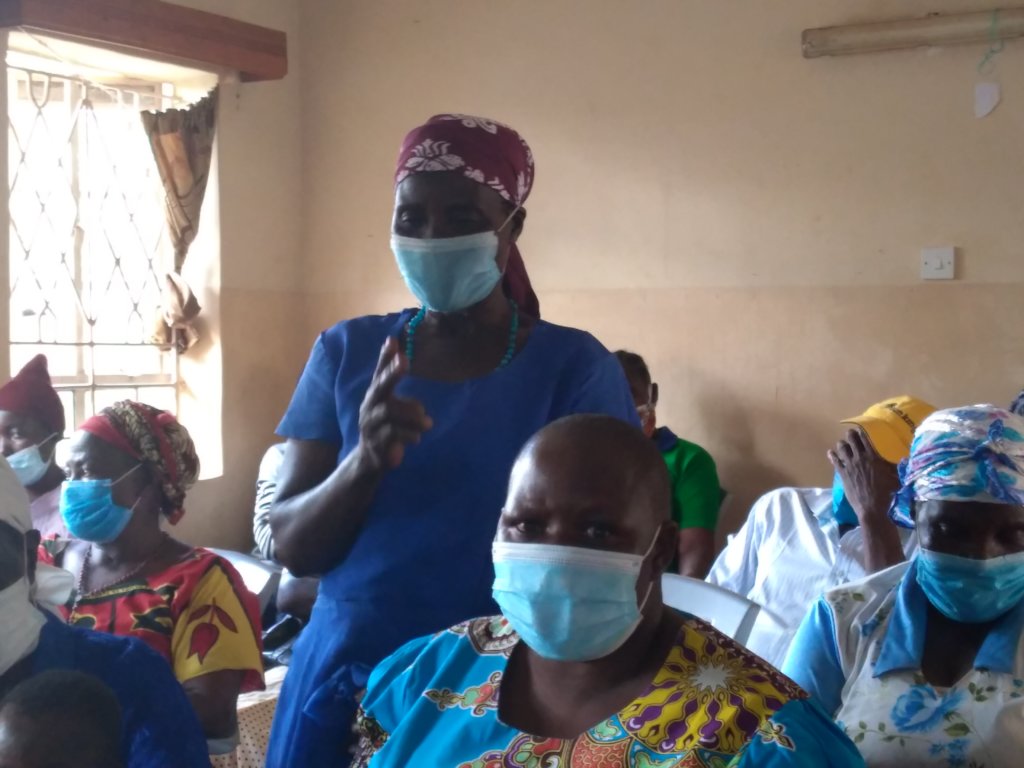By Edwin Nyongesa | Project Leader
ACTIVITY PROCEEDINGS
The purpose of this activity was to increase sustainability by ensuring the beneficiaries have owned the activity for long and will continue doing after WE REACH exits. WE REACH conducted a training to Orphans and vulnerable Children (OVCs) caregivers on kitchen garden and how to start a small business in their community that will be able to sustain them and the children they take care of.
Training of OVCs Caregivers on Kitchen garden.
Kitchen garden
The caregivers were trained on how they can start and maintain their kitchen garden. It was made clear to them that a kitchen garden is a small shamba or garden near their houses, where they can plant various vegetables and fruits. It was vivid that not any other shamba or garden can be called a kitchen garden.
It came out during the training that a kitchen garden can play a very vital role in sustaining the family need such as food basket and also financially. The caregivers were urged to use the kitchen garden as a source of income generating activities by selling part of their produce in the local market. This will enable them to acquire other essential needs like clothes, shoes, school fees among others.
On managing and maintenance of the garden it was discussed and agreed that they can use traditional method in yielding more produce by boosting the fertility of the soil by using animal waste and ash to prevent pests from damaging the crops.
The caregivers who did not have the gardens were encouraged to start developing their own because it’s an important initiative in the homestead. This cuts down the budget by 50% of the house. Therefore, making it a nessicity for each and every house hold to embrace.
How to Start a Small Business?
Having or owning a business is one of the ways of earning a living apart from being employed. Owing the current situation in the country and the world on the Corona virus pandemic, most of the population have lost their jobs and some are getting half of their salaries. Therefore, participants saw the importance of owning a business in the current crisis of unemployment.
Some questions like what need is there in my community? What can I do to address the need? And also where can I get the capital to address the need? The aspect of getting out of your comfort zone was emphasized in a way that, it gives them motivation to pursue the unknown hoping for a better ending.
Discussion and brainstorming was used to bring out the business opportunity available in their community which are; poultry keeping, selling fruits, vegetables, masks and liquid hand washing soap among others. Some caregivers have businesses this helped in the discussion on how they started their businesses, their challenges and achievements.
They were later trained on how to identify and pick an appropriate location for the business, how to set their prices and how to keep records on what they sell in order to account for profit or loss. Caregivers are important as they can be role models to the children. They are critical in ensuring that the children food and other basic needs are available.
WE REACH took the contact of the caregiver and the schools which their children attend in order to follow up on their academic work and wellbeing. This will help the organization in planning and coming up with strategies to address their problems.
LESSONS LEARN
CHALLENGES
5.0: RECOMMENDATIONS AND REQUIRED ACTIONS.
Project reports on GlobalGiving are posted directly to globalgiving.org by Project Leaders as they are completed, generally every 3-4 months. To protect the integrity of these documents, GlobalGiving does not alter them; therefore you may find some language or formatting issues.
If you donate to this project or have donated to this project, you can receive an email when this project posts a report. You can also subscribe for reports without donating.
